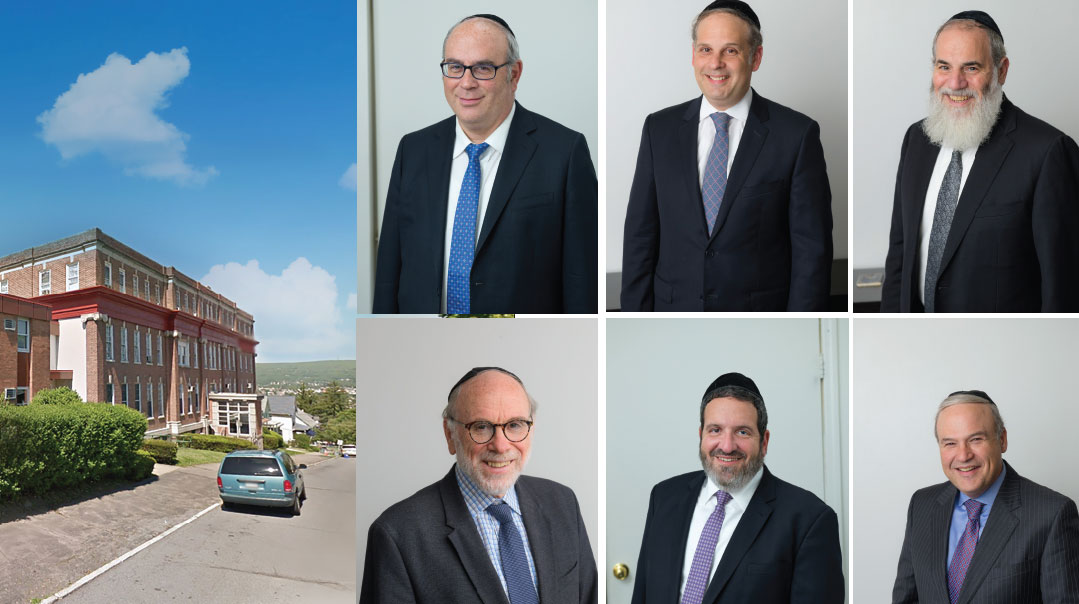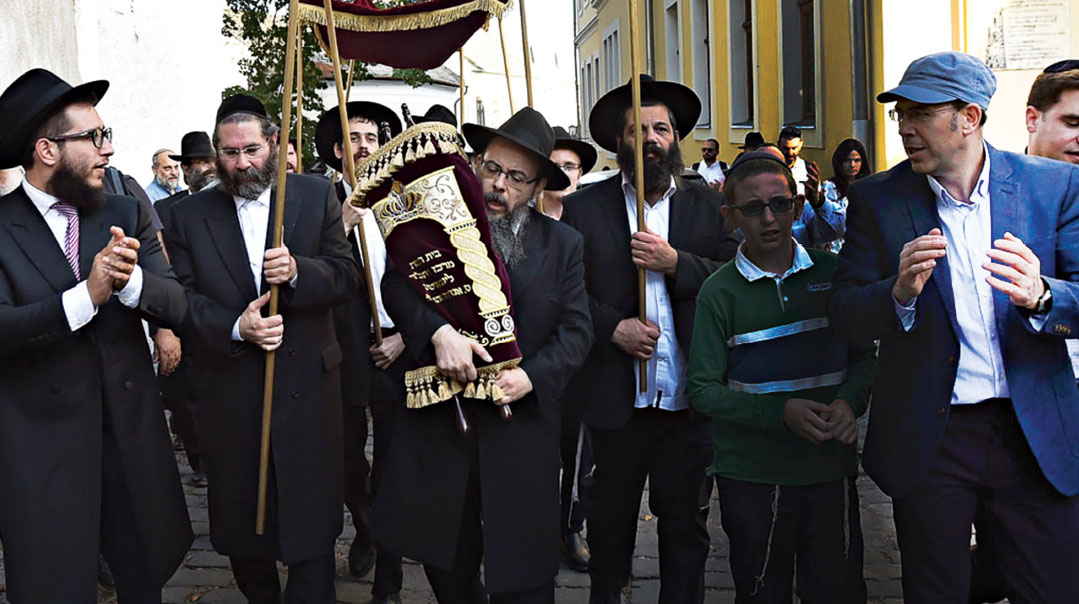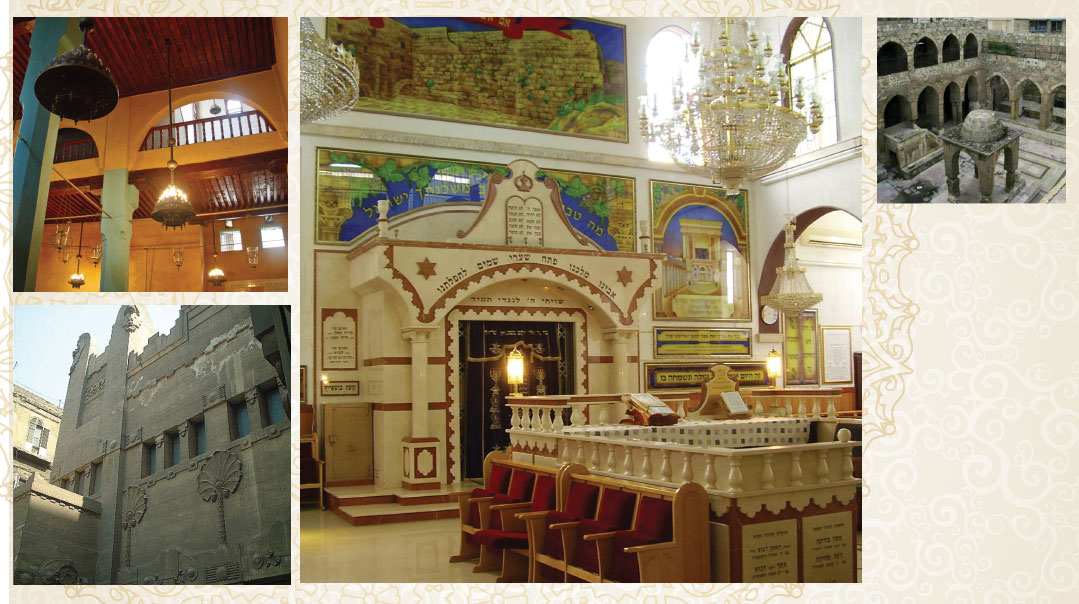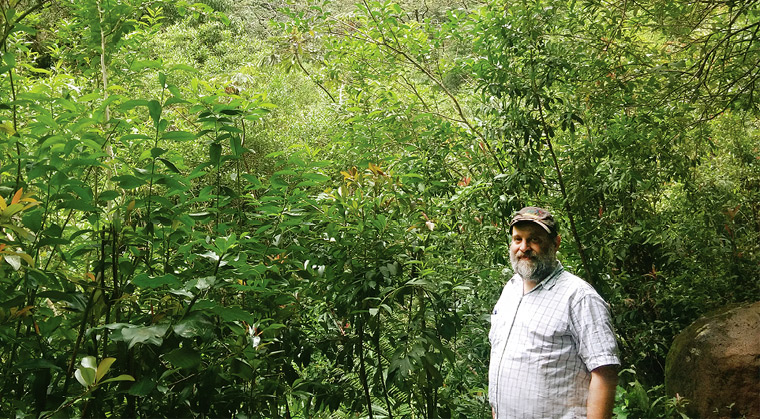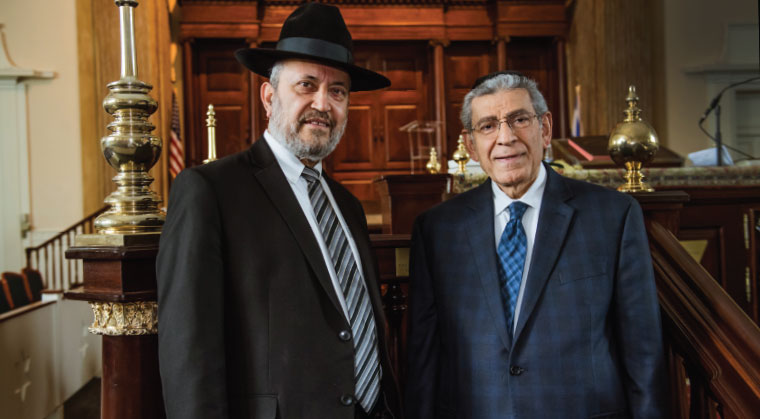Spain on the Mend

For more than 500 years, Jews were officially barred from living in Spain. Now, the descendants of the Edict of Expulsion of 1492 have been invited to reapply for citizenship. Some 4,500 have accepted the invitation as Spain tries to right one of the most egregious wrongs in Jewish history
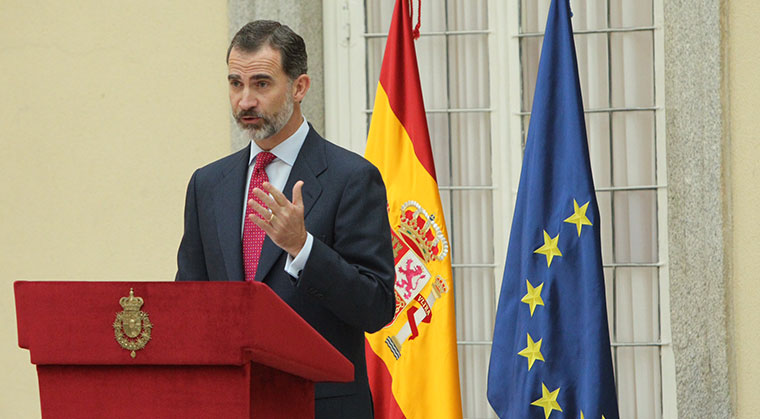
K
ing Felipe VI of Spain cannot singlehandedly rectify the wrongs committed by King Ferdinand and Queen Isabella, the royal couple who expelled hundreds of thousands of Jews from Spain in 1492.
Nobody can.
Yet the 48-year-old monarch has shown special grace to Spain’s Jewish community since assuming the throne in June 2014 after his father, King Juan Carlos I, abdicated following a 39-year reign.
King Felipe demonstrated that grace last week, mingling freely and conversing for nearly an hour with a visiting Jewish contingent at Madrid’s royal palace. The unusual meeting took place alongside a formal ceremony in which the king accepted the fourth annual Lord Jakobovits Prize from the Conference of European Rabbis (CER) in recognition of a new Spanish law enabling descendants of expelled Jews to reclaim Spanish citizenship.
Guests nibbled on hors d’oeuvre and sipped red and white wine in the ornate Palacio Real de El Pardo, built in the 16th century when Madrid became Spain’s capital. Surrounding us on the walls — which were punctuated with windowed balconies adorned with cream-colored shutters and railings of black brass and gold — hung tapestries created by world-renowned Spanish artists Bayeu and de Goya.
As King Felipe circulated, the invited guests pressed forward. Plainclothes security men kept a close watch, at a respectful distance.
Rabbi Pinchas Goldschmidt, the CER’s president, stood at the king’s side, making formal introductions. When introduced to Rabbi Dovid Libersohn, the Chabad shaliach from Barcelona, King Felipe asked him about the origins of the Lubavitch movement. When introduced to Rabbi Jonathan Guttentag of Manchester, the king asked him for details of the state of relations between the British rabbinate and the Queen of England.
During his formal remarks at the award ceremony, King Felipe — speaking in lightly accented English — said granting Sephardic Jews a chance at regaining lost citizenship was “Spain’s duty in the name of justice.”
When I asked King Felipe if he felt that Spain’s legislation can serve as a lesson to other European countries who want to make amends to their Jewish communities, he replied, “It’s not a matter of a lesson. Not all European countries had the experience we had, or had what to mend like we did.”

In an era in which most EU countries are grappling with an unending wave of immigrants, Spain’s new law is far from an open invitation to every Sephardic Jew. The World Jewish Congress estimates that just 4,500 Sephardim of a potential pool of 3 million have received citizenship since the law took effect 14 months ago. Some Spanish lawmakers have expressed concern that the final version of the law contains too many high bureaucratic hurdles for the average person to leap.
Asked if Spain could do more to help Jews overcome those difficulties, King Felipe replied: “I hope so. I don’t know all the technicalities involved, but there is someone coordinating among all the different communities who prescribes who has the actual [Jewish] identity. But that is something the Jewish community has to decide amongst itself. It’s not a question of government.”
Rabbi Goldschmidt says that one goal of the visit, aside from honoring the king and country, was to strengthen his organization’s links to the Spanish rabbinate and Jewish community and facilitate contact between them and those eligible for citizenship. “Whatever the process is, we are going to try to make it easier and more accessible,” he said.
And it’s not just the Jewish community he’s looking after. He cited a 2008 genetic study conducted by a team of biologists in England and Barcelona showing that some 20 percent of the population of the Iberian Peninsula (Spain and Portugal) has some Jewish blood. “In Mallorca and Ceuta, there are whole communities trying to come back to Judaism, so I think there is tremendous amount of potential here,” Rabbi Goldschmidt added.
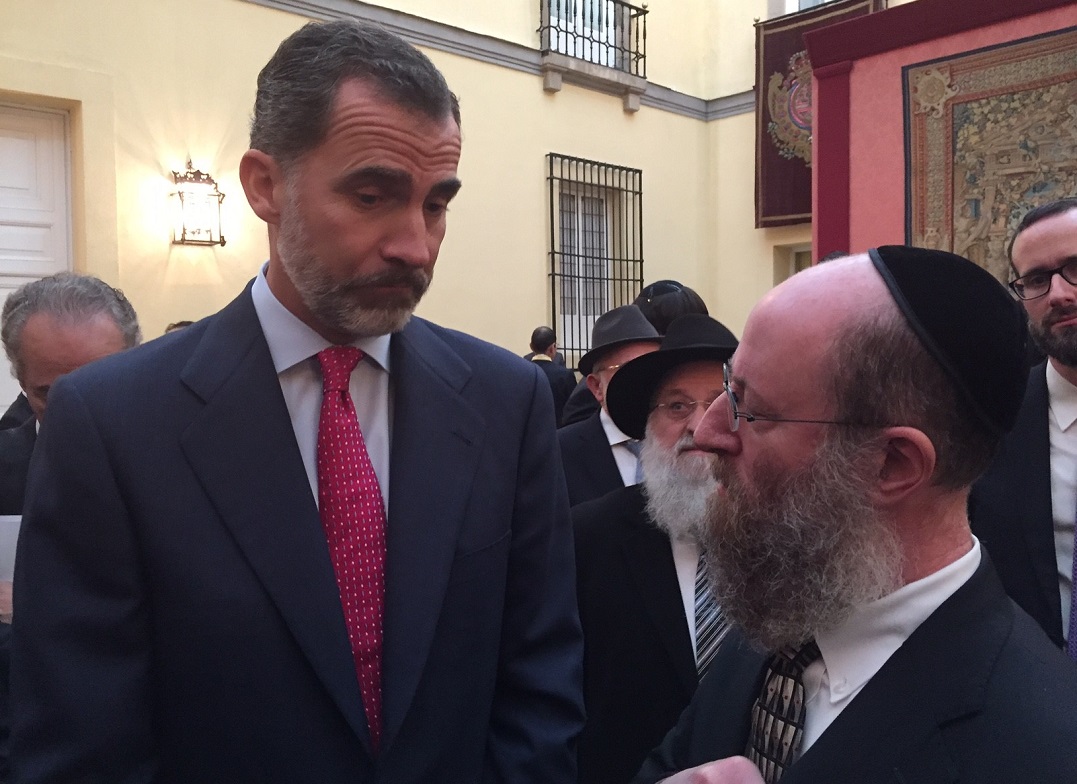
Not Just Sentimental
In addition to fulfilling a sense of justice, there are practical reasons why many Jews would find Spanish citizenship advantageous. There are still some 2,500 Jews in Morocco, a country that has no formal diplomatic relations with Israel. Moroccan Jews who want to travel to Israel generally go to France first to obtain a visa. Spanish citizenship, and the passport that comes with it, would ease their passage. Spanish citizenship would also be attractive to British Sephardim anxious to keep an EU passport once Britain formally severs its ties with the EU after Brexit.
But Spain has set some tough conditions for prospective citizens. A Sephardic last name is not enough. One must prove Sephardic background, by showing proficiency in Spanish, or evidence of knowledge of ancient tongues such as Ladino or Haketia — a Jewish-Moroccan Romance language. There are also reams of paperwork to fill out and documents to gather, translate, and notarize for validation by the coordinator King Felipe made mention of — the Madrid-based Federation of Jewish Communities in Spain (FCJE). The Jewish Museum of Rhodes, which has special expertise in genealogy, and the Instituto Cervantes both offer online information and assistance to maneuver through the bureaucracy. In some cases, applicants must travel at their own expense to Spain, or the nearest Spanish embassy or consulate. Total expenses could reach $4,000 to $6,000.
This burden prompted Jon Irritu Garcia, a congressman representing the Basque country, to quip: “It’s easier to win the Nobel Prize than to obtain Spanish nationality.”
Nevertheless, for some, the time and effort are worth it because they feel that Spanish citizenship has more than just symbolic value.
“It’s not just sentimental. It’s a recognition of the pain and suffering caused to descendants of the families expelled from here, by allowing them to be part of the country as rightful citizens,” says Rabbi Joseph Dweck, senior rabbi of the Sephardic community in the UK, who also attended the ceremony in Madrid. Rabbi Dweck hails from a family expelled from Spain who found refuge in Amsterdam. Born in Los Angeles, he served as rabbi of Shaare Shalom in Flatbush from 1999 to 2014 and was principal of the Barkai Yeshivah in Brooklyn.
The new law also provides much-needed moral support to Spain’s existing Jewish community.
“What we saw an hour ago, with the king of Spain, is proof that we have more allies than enemies in the fight against anti-Semitism,” said David Hatchwell Altaras, president of the Jewish Community of Madrid and vice president of the Federation of Jewish Communities of Spain.
The Shul Is a Fortress
On the surface, overt manifestations of anti-Semitism are rare in Madrid, but statistics show that dislike bubbles just below the surface.
The 2015 Anti-Defamation League global study, which measures public attitudes and opinions toward Jews in over 100 countries, ranked Spain the third-most anti-Semitic country in Western Europe, with 29 percent of the population harboring some form of anti-Jewish prejudice.
Madrid is home to some 3.5 million of Spain’s 46 million people, and about 15,000 of Spain’s estimated 45,000 Jews. Madrid’s Muslim population is estimated at 30,000.
The UK considers Spain a high-risk nation in terms of potential terror attacks, along with France and Germany, although Spanish officials contend the risk to Spain comes mainly from its proximity to those nations and not due to any concrete intelligence information.
In March 2004, Madrid was the scene of one of Europe’s most horrific terror attacks, when terrorists simultaneously set off a dozen shrapnel-filled bombs on four commuter trains heading for Madrid’s Atocha Station, killing 191 and injuring 2,000. Al-Qaeda claimed credit for the attack, saying it was in retaliation for Spain’s involvement in the US-led invasion of Iraq.
Madrid’s Beth Yaacov Synagogue, at the end of Calle des Balmes, takes no chances when it comes to protecting the city’s Jews.
A young security guard, fluent in Hebrew, Spanish, and English, steps outside as a trio of visitors ring the bell to get inside. Signs forbid taking any pictures of the building.
Once inside, visitors find themselves in a confined corridor, sealed by heavy glass and metal doors from the outside and inside. After examining our passports, the guard drops his guard, exchanges friendly banter, and hands us a two-sided handout with local davening times and a map of the area, including the kosher stores, restaurant, and the address of Madrid’s large local supermarket that has a kosher aisle.
With a couple of hours to while away until Minchah, we enjoy a late lunch at La Escudilla, the Moroccan meat restaurant that Yitzhak Shoshana and his sister, Aviva, opened in 2003, some 20 years after they emigrated from Tangier. It’s obviously a popular attraction. Within minutes of our arrival, a group of five people arrive from Hadassah Hospital, part of a contingent visiting Spain to purchase medical equipment.
“We feel comfortable here,” says Yitzhak Shoshana. “There’s no overt anti-Semitism to speak of. The government is good to us and there is security.”
Security in the neighborhood, and at the synagogue, tightens around davening times. A police van is parked conspicuously near the shul entrance. Two husky policemen with automatic weapons stand near the pedestrian entrance to the street about 20 feet from the shul, which also houses the Jewish community center. On weekdays, the minyan convenes in the second-floor beis medrash, while the larger shul on the third floor is used on Shabbos and Yom Tov. The community center also hosts Friday night Oneg Shabbat programs for the community and guests.
Beth Yaacov’s mara d’asra is Rabbi Moshe Bendahan, who since 1997 has also served as Madrid’s chief rabbi. Rabbi Bendahan’s family fled from Morocco in 1964, when he was eight years old. After spending a few years learning at Porat Yosef and with Rabbi Shlomo Katzin at the Old City’s Sefaradi Bet Midrash, Rabbi Bendahan returned to Spain in 1986 to work in chinuch.
That was the same year Spain established diplomatic relations with Israel, a decade after the end of fascist rule, during which there was a crackdown on religious observance. Today, Madrid has a kollel, a mikveh, and four kosher stores, one of which is packed with frozen meat and chicken and a wide variety of cheeses and salads. But Rabbi Bendahan’s biggest worry is not whether his flock will have enough to eat.
“Our biggest challenge is to strengthen our youth with Torah study so that they do not assimilate,” Rabbi Bendahan says. “The best developed communities in the world are the ones with the best chinuch.”
Madrid’s main yeshivah with a large chareidi presence is located at Kolel Torat Moshe, in the Hortaleza section in north Madrid. It has some 310 students in grades K-12. Functioning since 2002, the kollel sponsors more than 5,000 annual hours of Torah study for youth, adults, and children. More than 60 professionals set aside time for daily Torah study, either in chavrusas, or in shiurim.
Estrella Bentolila, whose father Yehuda is head of the Jewish kehillah in Ceuta, a Spanish territory contiguous to Morocco, teaches math, science, and Hebrew language to students in grades 6 to 11. “Education is my most important goal in life. My students get high marks and to me, that’s because their Torah makes them wiser.”
Such a community is quite an accomplishment considering Jews were locked out of Spain for nearly 500 years, until the Edict of Expulsion was canceled for good on December 14, 1968.
Construction began on the synagogue immediately thereafter, but it was only after Spain signed its State Cooperation Agreement with the Jewish communities in 1992 that individual and collective religious rights were protected by law. To mark that occasion, King Felipe’s father, Juan Carlos I, visited the Beth Yaacov Synagogue, uttering the words, “Spanish Jews are in their homeland.”
At the CER ceremony at the king’s palace last week, Rabbi Goldschmidt made the brachah over a king with Sheim and malchus, after consultation with Dayan Chanoch Ehrentreu of London, who also attended. The award he handed the king depicts an open Torah scroll lying on three closed Torah scrolls, symbolizing the CER’s mission to recreate a Jewish presence in Europe after the Holocaust.
In previous years, the CER awarded this prize to EU Commission president Jerzy Buzek, German chancellor Angela Merkel, and French prime minister Manuel Valls. Asked if awards of this nature have proven themselves in terms of better relations, Rabbi Goldschmidt replied: “Today, the doors of governments all over Europe are open to us. When we say something, we are being listened to, whether it is in France, or in Germany, or now in Spain.”
Rabbi Goldschmidt said the CER chose Spain and King Felipe this year because of Spain’s special relationship with the Jews — for better and for worse.
“We can look today at the US, where Jews can be part of the system and be 100 percent frum. The only other time this happened in our history was in Spain,” Rabbi Goldschmidt said. “The Spanish government and the king are at the forefront of trying to restart Jewish life here. Telling descendants of the expulsion that they can come back to Spain is a very powerful statement.”
(Originally featured in Mishpacha Issue 640)
Oops! We could not locate your form.







